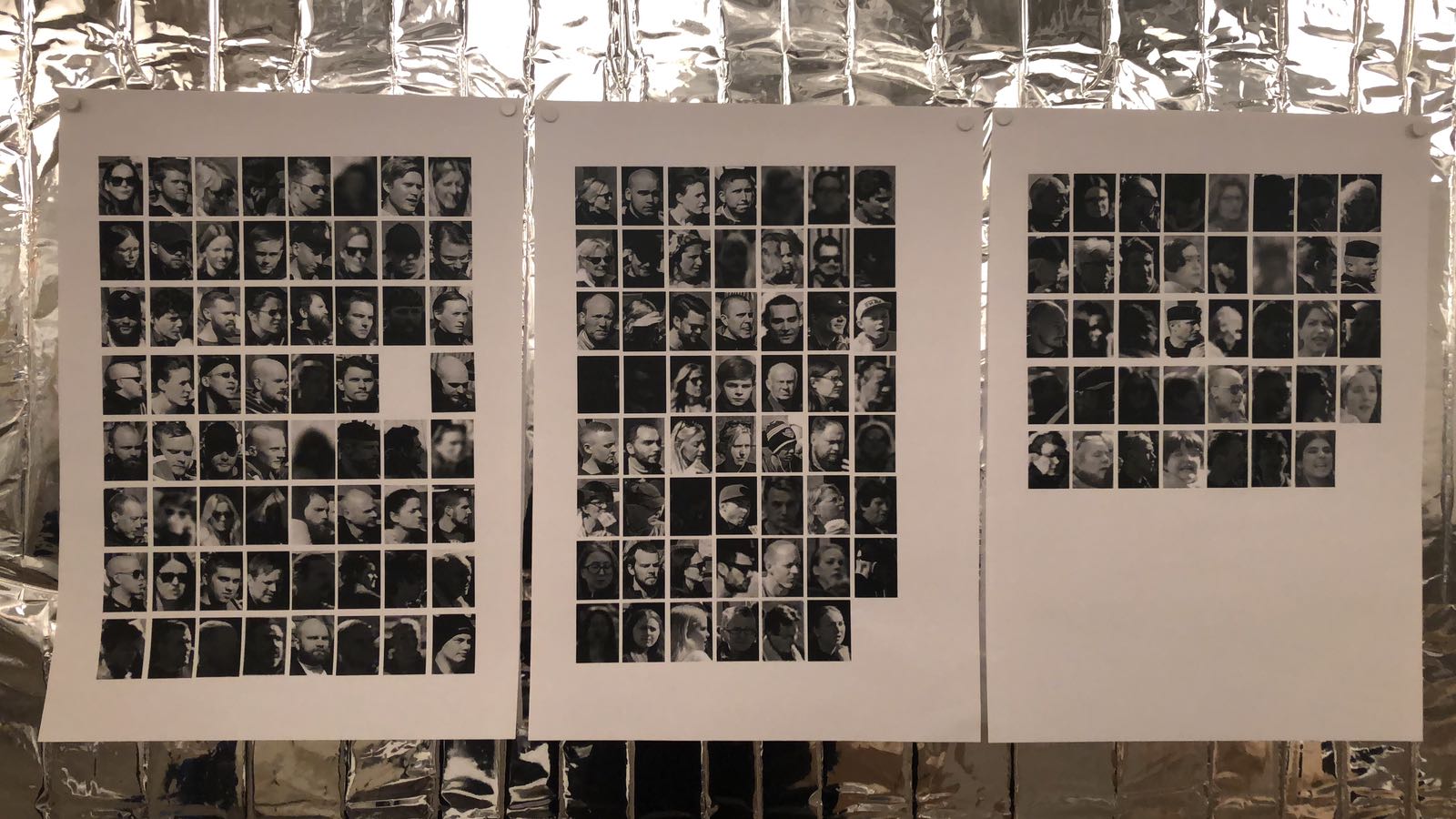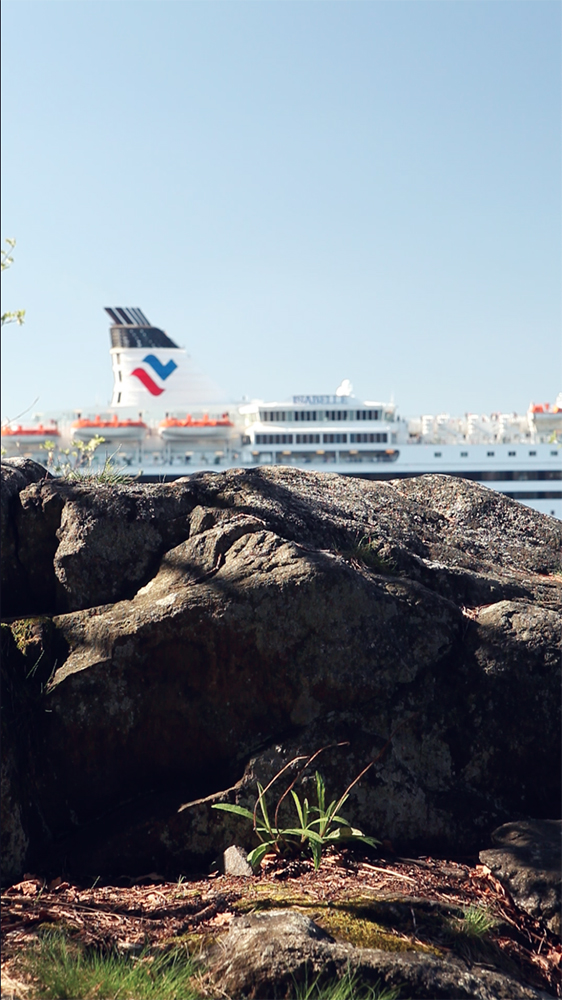Artist Blog
Every week an artist whose single image was published by Der Greif is given a platform in which to blog about contemporary photography.
Hi, I’m Thomas, I’m in search of something better
May 17, 2018 - Thomas Kuijpers
Hi, I’m Thomas, I’m in search of something better
I felt like it was time for some optimism. I got the chance to participate in the Grolsch Unseen Residency, that this year takes place in Stockholm. The perfect place to find ‘something better’ I thought. Because in Sweden everything is perfect, right? Also, the lack of vision in the political landscape in the Netherlands and Belgium (the countries where I work and live) is getting really annoying to witness – also a good reason to go to Sweden, because I’ve always looked at this government as a government with a vision.
CNN stated in 2017, just after the Dutch elections “Europe’s far-right populists fail first test” – because the most far-right guy didn’t win the elections. But didn’t he? I mean he didn’t become the biggest party, but mainly because all other parties started to adopt parts of his radical party programme – that’s how they got some of the votes back. They traded their vision for votes. Social parties of which you wouldn’t have even ever thought they would make statements like this suddenly acted like it’s normal, the new standard, we have to face the reality. Vision, ideals, out of the window. Europe’s far-right populists won big-time, and for the first time in the Netherlands, where one radical political party managed to drag the whole political spectrum of what used to be called ‘the most tolerant country in the world’ towards a narrow-minded anti-immigrant based majority. The whole spectrum shifted a big chunk to the right. The easiness, with which some social parties traded their vision for votes, was astonishing to me. Who to trust? Not only in Europe, I mean, look at Trump, one day he says A, the next day he says B, and a week later he skips from X back to P. It makes no sense. It’s all so short term. Our contemporary politics are best to be described as governments of damage control, without any real vision that reaches beyond the problematics we are facing.
Sure, we have big issues to solve, the immigrant crisis is called a crisis for a reason, so is the financial crisis, the environmental crisis, we can go on like that for a while. But it seems that very little thoughts about the world that exists after these problems reach me, especially through politics, what would be the perfect stage for thoughts like these, right? It used to be, at least. What does the perfect place look like, in case we conquer these obstacles? What is beyond these mountains of major issues? Maybe if we find an answer to that, it would give us a sense of direction. I’m not going to find the answer, but I’ve been asking a lot of locals here in Stockholm these questions, and most importantly the road they think we have to take to get to that point. Even in Stockholm, one of the wealthiest cities in the world, I encounter so many different voices that have a wide range of visions on how the perfect society should look, and what would be the best route to get there.
I’m collecting all these visions, words, quotes, and writings that touch upon the things I’ve heard so far. The foundation of the work thus lies again in the things I collect, but in a completely different manner this time. The ingredients aren’t steady facts, black on white, they’re floating ideas of how we could get to a better world – hard to value. Not solid. I think for this concept and this project this is exactly what I need to collect though. I’m one month in now, one month left. Halfway there. But still no idea about where it will end. Like someone told me: “We’re moving forward, that’s inevitable, even if forward means backward – but the destination is up for debate.”
I will share some super premature sketches of the ideas so far:
Currently, I’m in the middle of rewriting all the things I’ve heard, along with some scenes I saw on the street I thought where interesting additions, into something that has to have the illusion of a dialogue. Two people, sitting in the same car, driving through the darkness, not seeing exactly where they are going, will spill out these parts of interviews I’ve conducted over the past weeks. Different visions of where we want to end up, and how we will get there. Sometimes the two monologues will connect, creating the illusion of a dialogue, a bridge between two ideas that might come together, but then they will drift off again.
I will highlight some of the quotes that will be part of the movie, as some of them will also get a secondary visual interpretation.
“It’s true that we have a history of aiming for some form of perfection within our society. Since years the government has been pursuing this idea of the individual freedom as the highest good, financial, educational independence, equal chances for everyone. The urge for individual equality and thus freedom is something we grow up with. It’s not about all ending up as equals, but about us all having the same chances and freedom to take a path that suits us best.”
“If my country would go back to being a white country, with the values that were once very normal here, I’m happy. We want to take care of every single one of us, no matter if he’s old, handicapped, or sick. But the immigration costs us a lot of money, and because of that, we can not do it. So they need to leave. All of them. So we can take care of our own again.”
“But it’s not a place where we’re going. It’s a process, for which we’re all responsible. An irreversible process, of which the destination might just as well be a place we really don’t want to be. The quest is to avoid this. Don’t play with unforeseen outcomes, they are likely to be unpleasant.“
“The thing is, as long as we won’t accept our colonial heritage, things will never get better, because we will never rationalize why we have what we have, and with that why we want to protect what we have. With all these immigrants coming in, this is the most heard argument. The fear they will take from us. Like our ancestors took from them. The presumption of this idea only has to be confirmed once or twice in global media, and we’re back to this protective state of being, ousting things that are different and thus untrustworthy. If we could only bridge this gap, and look at them as ‘us’ – I think about 90% of all problems in the world would be solved. No idea how to get here, but I guess a good thing would be to start with teaching our kids a non-whitewashed version of history. Not to overload them with guilt, but next to being aware of the effects of fake news it would be a good thing to be just as aware of fake history.”
Thanks to the Greifmeisters for opening up their platform to me, and thank you all for reading! Hope to see you in London, or during Unseen in September where I’ll be presenting the project described in this blog. Luvvv! T





